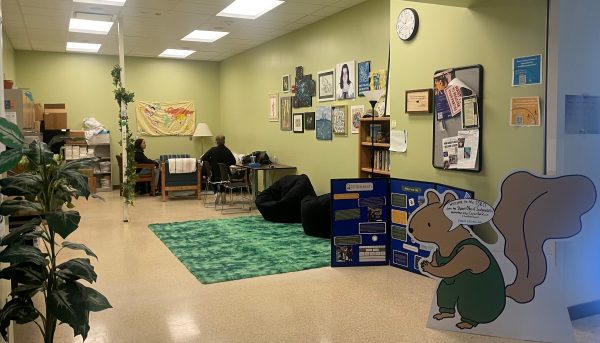No room for nurses
Last year, more than 70,000 qualified applicants nationwide did not get into nursing programs because they weren’t qualified enough.
In the UW System, 50 to 80 percent of qualified undergraduate students weren’t accepted into the program due to the shortage of nursing educators, said Linda Young, dean of the College of Nursing and Health Services at UW-Eau Claire.
The average age of faculty in Wisconsin is 58, Young said. This means as educators retire, the number won’t meet the demand of students.
“There is going to be a very large nursing shortage in the not-too-distant future that will remain for a lengthy period of time, primarily because our baby boomers are getting older,” she said.
A large interest in the field with a low supply of educators means tough competition. This semester, Eau Claire admitted more than 260 pre-nursing students. The university requires these freshmen to get accepted into the nursing program by their sophomore year if they want to continue nursing. Only 40 spots are available.
This is why Young, along with Jan Adams from the College of Nursing applied for a $3.2 million grant to hire more educators to help nurses obtain their Doctorate of Nursing Practice. Over time, this will allow UW schools to accept more nursing students.
Eau Claire, along with UW-Madison, UW-Milwaukee and UW-Oshkosh received the grant, giving students who want to pursue nursing a new hope.
Sophomore Mackenzie Shafer planned on applying to the College of Nursing this year, but with her 3.3 GPA and one credit shy, she said she decided it was best to not overload her already overwhelming class load.
“This is such a good nursing program, but it’s too competitive,” Shafer said. “It’s so scary that it makes school almost unenjoyable.”
During Eau Claire’s fall registration, undergraduate contenders needed at least a 3.82 GPA, combined with high ACT scores and the best essays to be accepted. Young said unfortunately, students with good grades might not be accepted because of the lack of faculty.
A major part of the initiative is to attract graduates to return to Eau Claire or the other three universities they applied to. Applicants with a Ph.D can receive up to $50,000 in student loan forgiveness if hired, Young said.
Kayla Roeser, a senior graduating in December, said the offer is tempting and never considered teaching with her nursing degree.
“I have all these skills … and I want a job in a hospital where I can use them,” Roeser said.
She said she overlooked the possibility of using her skills to teach others and said she thinks the initiative gives many incentives to find work as an educator, rather than in a medical setting.
However, finding a job isn’t at the top of her list at the moment because Roeser said she needs to pass the NCLEX board exam first. If successful, she said she wants to work in Minnesota, close to where she grew up.
As for most of Wisconsin nursing graduates, Young said 86 percent continue to live and work in Wisconsin in various fields. In the meantime, UW schools including Eau Claire have plenty of students eager to learn, with not enough people to teach them.





